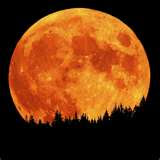SUCH MAGIC, THIS TIME OF YEAR
Autumn equinox, cycles of nature and Chinese philosophy
The Chinese were great students of nature. Autumn is connected in Chinese thought with the direction west, considered to be the direction of dreams and visions.
In the Chinese tradition, the autumn season is associated with the color white, the sound of weeping, the emotions of both courage and sadness, the lung organ, the metal element, and a white tiger. Autumn is also connected in Chinese thought with the direction west, considered to be the direction of dreams and visions.
What does all this mean? It’s a system – a cosmology if you will – that describes how nature works.
To the Chinese, nature means more than just the cycling of the seasons. Nature is within us and around us, in all things. The basic cycles of nature, as understood by the ancient Chinese, are easily comprehensible by western students of nature. They ring true. After all, Chinese civilization flourished for 15 centuries before the Roman Empire came to be. Today we know it’s part of Chinese culture to maintain and add to ancient wisdom. In contrast, we in the western world tend to replace old ideas with new ideas. So – although our western way of thinking encourages advances in things like technology and economics – the Chinese understanding of natural cycles remains far deeper than ours.
Here’s a quick and easy lesson on the Chinese way of thinking about nature and its cycles. We all experience the fact that things sprout and begin to grow (spring). They ‘fire up’ or ignite or bloom (summer) and reach completeness (late summer). They begin to dry and wither (autumn). They rest (winter). In ancient Chinese thought, these five seasons – or five ‘elements’ or five ‘phases’ – include an inherent understanding that the cycle continues endlessly, with each period of rest or winter followed by new growth, or spring.
Each of the five phases or ’seasons’ of ancient Chinese philosophy carry associations with specific things: directions, colors, sounds, organs in the body, fundamental elements such as water or fire or metal, real or mythological beasts.
Here’s another simple example. While summer is associated with the the emotion of joy, autumn is associated with both courage and sadness. Of course it is, because, in autumn, things are dying. The light is dying, for one thing, as Earth’s orbit around the sun and tilt on its axis combine to carry us in this hemisphere further away from receiving the sun’s rays most directly. The days are getting shorter. Plants and trees are winding down their cycle of growth. Sadness – and courage – are natural emotions as these changes are taking place.
That’s part of what the Chinese philosophy of the five phases or five elements is trying to convey: for example, sadness is part of the autumn season. Sadness isn’t an emotion to be avoided at all costs. Instead, sadness is simply part of nature.
So to celebrate the autumn equinox as the Chinese philosophers did, you might...
Stand facing west, considered the direction of autumn in ancient Chinese philosophy. Just stand for a few moments and honor the ‘westness’ of autumn. Consider your dreams and visions, and the path on which you’re moving forward through your life.
Light white candles against the growing darkness of the season. Or place white flowers on your table. White is the color of autumn in the Chinese tradition.
Allow yourself to weep for things you have lost. Weeping is the sound of this season, according to Chinese philosophy.
Find the courage to face what’s ahead.
The Chinese understanding of nature’s cycle seems fanciful, but, once you begin to consider the five elements or phases of Chinese philosophy, you see them cycling in and around everything. You can recognize these phases in the course of relationships, over a workday, in the progress of a play or novel, in the process of aging, while eating a meal, in the growth of a garden, in a scientific or political or business enterprise, while playing a game. All things sprout, bloom, reach completeness, become brittle and die, then rest. Then the cycle begins anew.
Once you learn this basic fact of nature, the dry and brittle phase of autumn, when things are dying – or periods of loss in your life as a whole – become easier to bear.
Written by Deborah Byrd


3 comments:
This is such a beautiful way to put it.
Although I'm a great admirer of the Chinese and their culture [I should, having lived in the country for almost 37 years], I don't buy any of this.
As you say, the number 5 appears in a wide range of situations in Chinese thought, but the choice of this number is essentially arbitrary, and the linking of specific organs, 'elements', flavours, etc. to specific characteristics has no basis in what I regard as empirical fact.
Sorry to sound negative, because this post is well written, but I do feel that the above caveat is needed.
Thanks for stopping by and for your comment. I don't disagree with your addition to the post...what about spirituality isn't arbitrary?? Stop by anytime...
Post a Comment